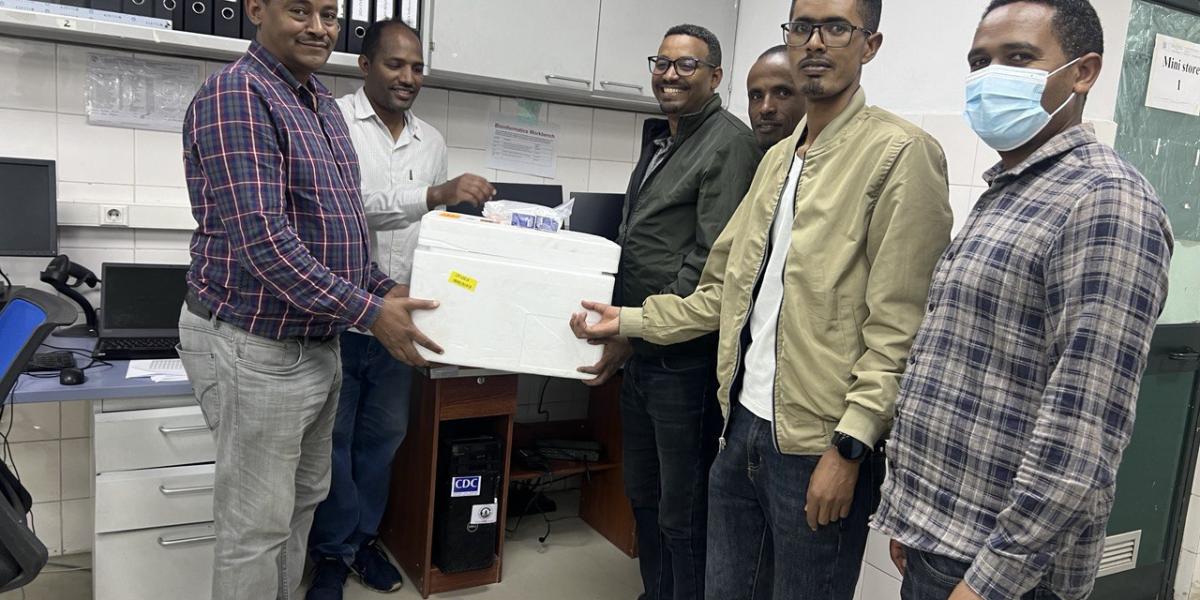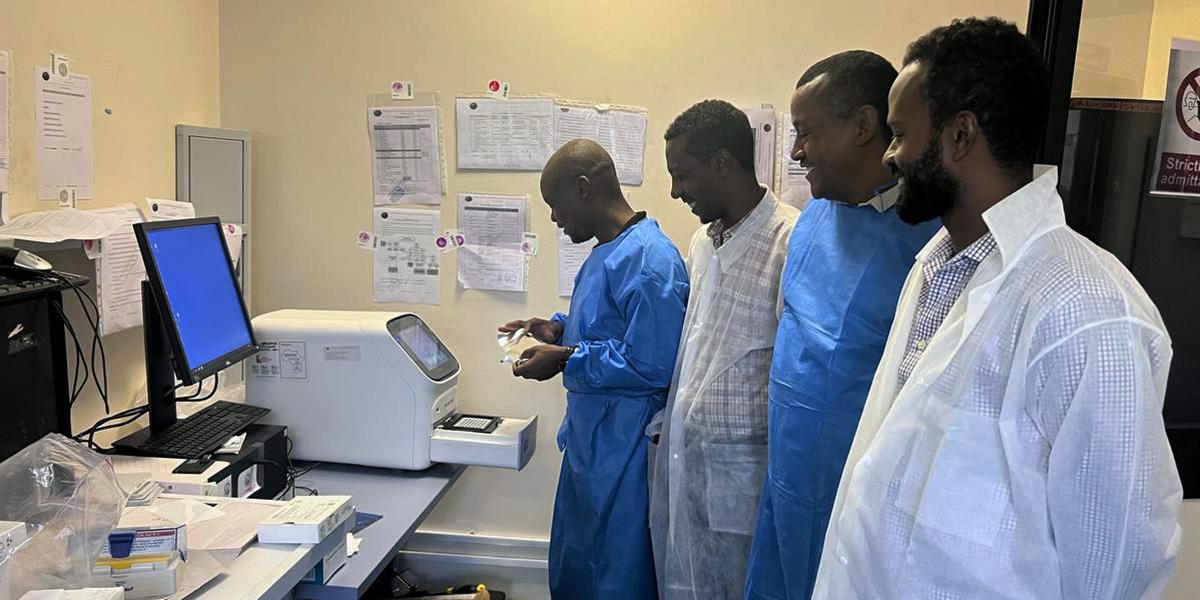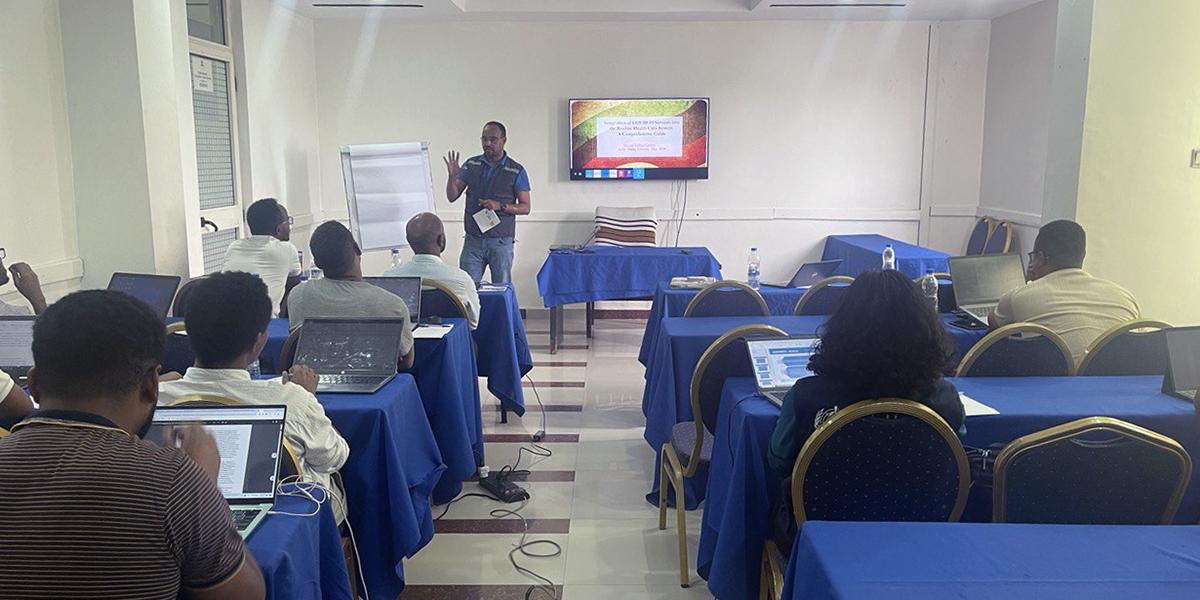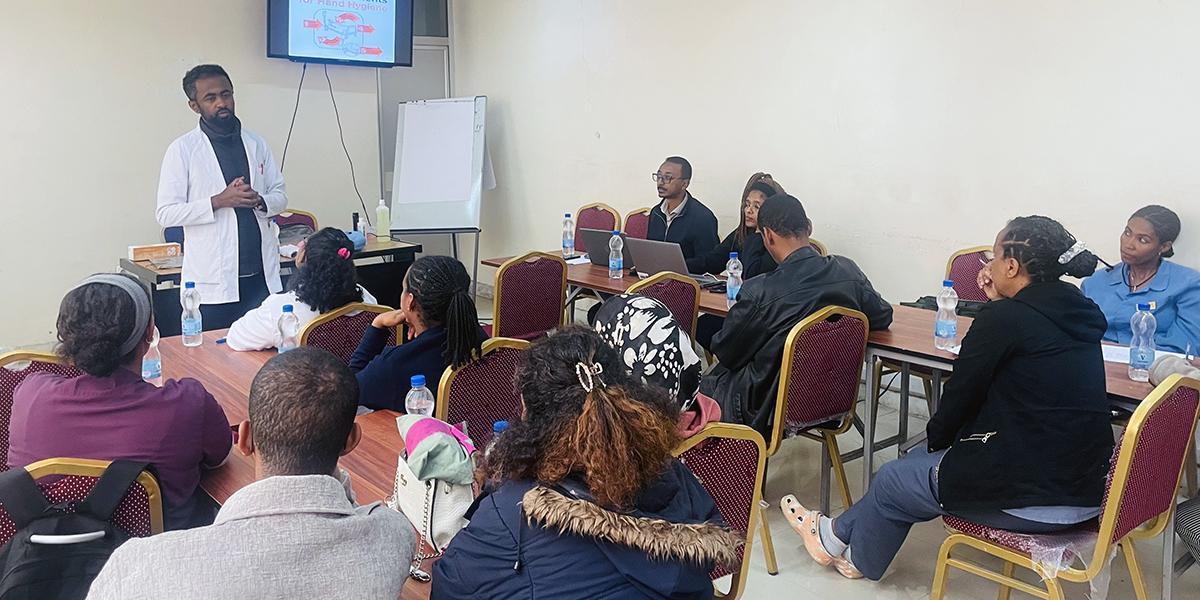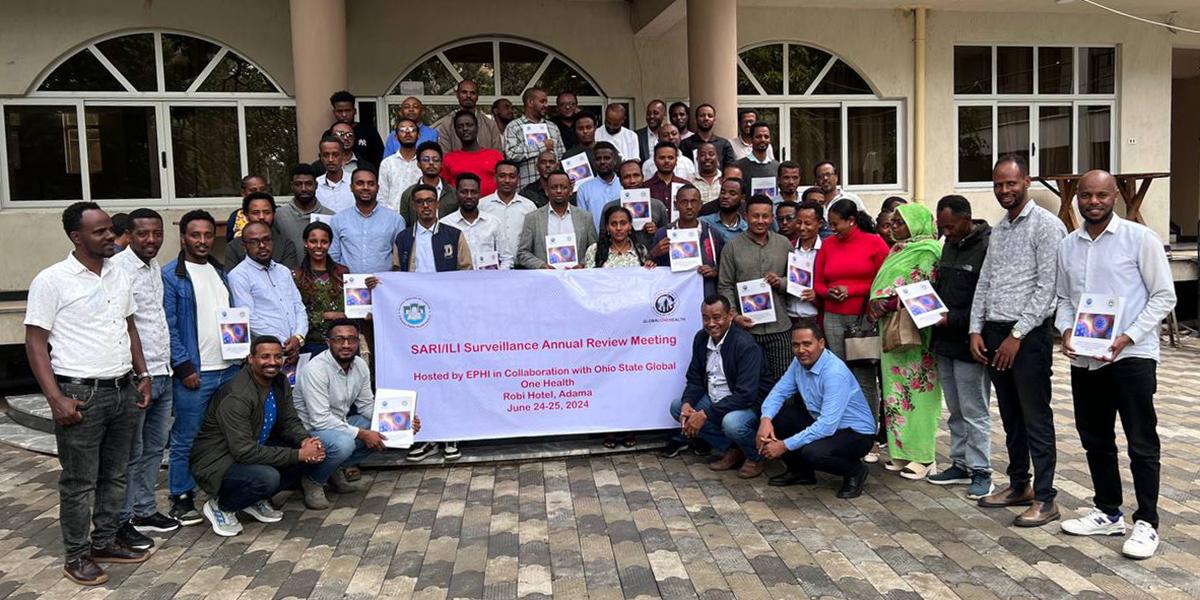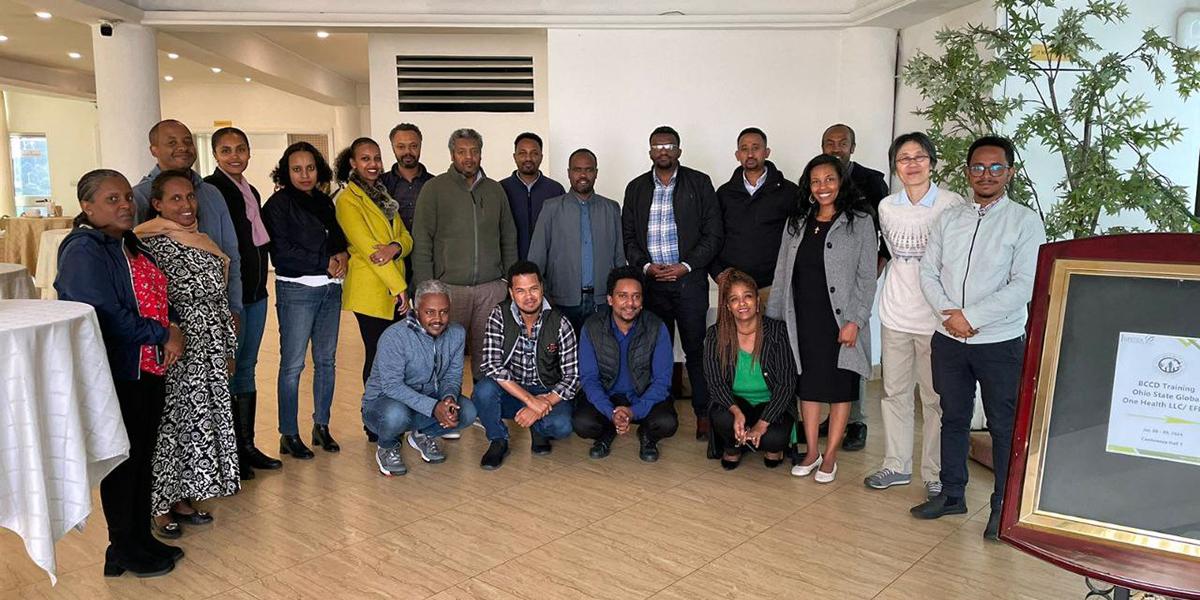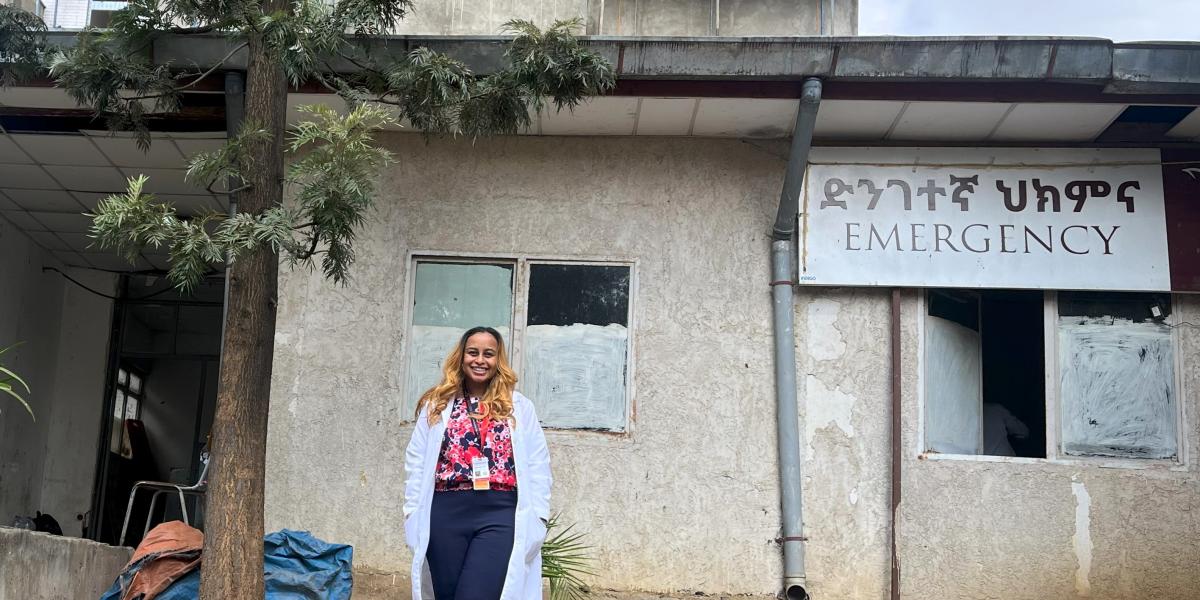Tagged: Global One Health
The Global One Health initiative (GOHi) recently provided the Ethiopian Public Health Institute with essential laboratory reagents to detect various pathogens that cause disease, including SARS-CoV-2, influenza, respiratory syncytial virus (RSV) and anthrax. This contribution is pivotal for enhancing routine monitoring of respiratory pathogens and responding effectively to the suspected anthrax outbreak in the northern part of the country.
Ethiopia is currently facing a challenging situation with multiple ongoing outbreaks, such as cholera, measles, malaria, and dengue fever. To effectively manage these crises, the Multi-Outbreak Response Incident Management System was activated by the Ethiopian Public Health Institute on March 23, 2023.
Expanding capacity of the One Health approach through education, training and research is the cornerstone of the Global One Health initiative’s (GOHi) mission.
In a collaborative effort to address the challenges of data quality in antimicrobial resistance (AMR) surveillance, the Global One Health initiative (GOHi) partnered with the Ethiopian Public Health Institute (EPHI) to conduct a training program about data management and basic statistical modeling in One Health research.
The Global One Health initiative (GOHi) facilitated the calibration of real-time PCR machines in four regional influenza laboratories across Ethiopia through a service contract with African Biosystems, Kenya from July 29-August 9.
Strategically located to serve large populations, the laboratories are critical for detecting respiratory illnesses and emerging pathogens, like Mpox.
In partnership with the Ethiopian Public Health Institute, GOHi conducted a workshop on developing a comprehensive guide for integrating COVID-19 service delivery into the routine health system.
GOHi's antimicrobial resistance project helps support healthcare workers in effectively implementing IPC practices in their everyday work.
GOHi is working to strengthen national and international efforts on influenza surveillance by introducing a national SARI/ILI surveillance protocol, evaluating national and site-level performance and assessing the performance of regional influenza testing laboratories.
Applying standardized case definitions is crucial to enhancing the ability to accurately assess the causality of Adverse Events Following Immunizations (AEFIs) and contributing to vaccine safety monitoring.
Emergency medicine resident Saron Checkole on global healthcare in Ethiopia.
